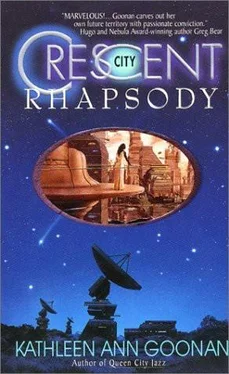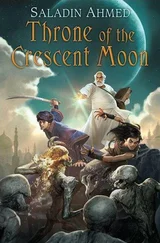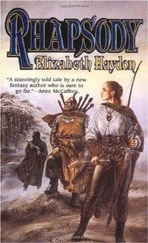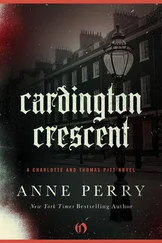Kathleen Goonan - Crescent City Rhapsody
Здесь есть возможность читать онлайн «Kathleen Goonan - Crescent City Rhapsody» весь текст электронной книги совершенно бесплатно (целиком полную версию без сокращений). В некоторых случаях можно слушать аудио, скачать через торрент в формате fb2 и присутствует краткое содержание. Год выпуска: 2000, ISBN: 2000, Издательство: Avon Eos, Жанр: Фантастика и фэнтези, на английском языке. Описание произведения, (предисловие) а так же отзывы посетителей доступны на портале библиотеки ЛибКат.
- Название:Crescent City Rhapsody
- Автор:
- Издательство:Avon Eos
- Жанр:
- Год:2000
- ISBN:0-380-97711-7
- Рейтинг книги:4 / 5. Голосов: 1
-
Избранное:Добавить в избранное
- Отзывы:
-
Ваша оценка:
- 80
- 1
- 2
- 3
- 4
- 5
Crescent City Rhapsody: краткое содержание, описание и аннотация
Предлагаем к чтению аннотацию, описание, краткое содержание или предисловие (зависит от того, что написал сам автор книги «Crescent City Rhapsody»). Если вы не нашли необходимую информацию о книге — напишите в комментариях, мы постараемся отыскать её.
is a world that is being changed by the day by advances in nanotechnology; it is a world where radio has died, of vastly increased lifespans and where extra terrestrials will play a pivotal role in everyone’s life.
Crescent City Rhapsody — читать онлайн бесплатно полную книгу (весь текст) целиком
Ниже представлен текст книги, разбитый по страницам. Система сохранения места последней прочитанной страницы, позволяет с удобством читать онлайн бесплатно книгу «Crescent City Rhapsody», без необходимости каждый раз заново искать на чём Вы остановились. Поставьте закладку, и сможете в любой момент перейти на страницу, на которой закончили чтение.
Интервал:
Закладка:
Once that happened, all bets were off. The floodgates would be loosed. Control over matter, on a very discreet scale, would be possible. But it seemed just as likely that molecules that could create others like themselves might engender a chain reaction until all available matter was used up, and the Earth and all living creatures were reduced to simple lifeless forms of matter.
It was a terrifying vision.
Yet, unlike most people—at least those who ventured an opinion in a public venue—Marie did not fear the development of a viable nanotech. She took a keen interest in it. There would be some point, she believed, that humanity would pass a point of no return, beyond which everything would be unimaginably changed.
She planned to be there. And she planned to take her city with her.
Marie looked away from her stock information, the varied ways in which sales, calls, and puts were progressing. She enlarged several pictures of her daughter and set them in motion so that Petite Marie danced, stuck out her tongue, played quietly in the corner of this very room, unaware that her actions were being saved.
Beauty had blessed—or cursed—most of the women in Marie’s family, quadroons and mistresses and then the free businesswomen who had laid the foundation for Marie’s present fortune. One of them had been the sister of the famous second Marie Laveau, voudoun queen of New Orleans, and the name had made its way down through several rings of cousins before alighting, solitarily, on Marie.
Until, that is, her own daughter, Petite Marie, had been born.
Marie always felt that her own face was too strong for beauty, her nose too straight and long, her chin too determined, her eyes too clear of the romantic rubbish that had ruined her mother’s life. But the ancestral pattern of beauty was reasserted in Petite Marie. This was quite obvious, even though she was only five years old. Her dark eyes were round and large; her skin, the color of gold-kissed mahogany, held a constant deep pink blush over her cheekbones. Her irascible hair flowed in a black kinky stream down her back, resisting combs, causing a daily temper of screams and threats. She was wild, merry, a delight…
And she should have arrived in Paris by now. Marie blanked the videos and rubbed a cramp at the back of her neck. She could easily verify her daughter’s physical location. She could beep up Petite Marie, or Hugo, or Al. She could check the satellite position of the jet, her own private jet. She restrained herself. Al, her husband, was greeting their daughter. He was giving her presents. Too many presents. Al’s nasty yappy little white dog was bouncing around like a Ping-Pong ball, adding to the din. Soon they’d remember Mom, staying behind to work. Alone. Any minute—any minute they would call.
At least Hugo was with Petite Marie and would remain during the long visit she would have with her father. Being a dwarf did not seem to handicap Hugo’s ability to do anything, including being a bodyguard nonpareil .
Marie clipped back the braids dangling in her face with a brusque gesture as she studied a constant feed of red, green, and yellow lines tangled in one quadrant of her screen. The lines paused; knotted in an odd rhythm. Scrying these signs was like watching the surface of the sea, divining not only that there were fish below, but their size, depth, color, direction of travel. This twinge signaled something different. And therefore important.
She called up specifics. Someone—somewhere—had sucked down a big chunk of a rather interesting small company working on artificial, trainable neural pathways. The company was called Consciousnets. She glanced at their annual report, then asked for their bills of lading for the last six months, quickly analyzed the raw materials, and told two different analysis programs to figure out who was behind this purchase.
Leaning forward, suddenly eager, she set up the process that would acquire snips of Consciousnets from here and there, gradually, in a process that might take hours or days and initially be distributed to a range of buyers with no discernible connection.
Sheer gauzy curtains billowed into the room as a gust of wind brought her back to the present. Why didn’t they call? Al’s stubborn face, that face she’d found so attractive years ago and still did, damn him, appeared on the corner of her screen as she spoke his name. She almost said, “Call,” but hesitated. No, she’d give them a few more minutes before pestering them.
Al wouldn’t live in New Orleans. He claimed it was too dangerous. Marie thought that was just an excuse; he was simply homesick. All his communication to her since he had returned to Paris had the same content. She could almost hear his delightful accent as she glanced again at his smiling brown face: I’ve lived in your country; now you live in mine. Come to Paris, to my worn, pleasant rooms piled high with books, forgo your heritage, honor our marriage, become civilized and leave your obsession with the future in a haze of flowering spring trees and strolls along the Seine and my delightful cooking.
His cooking! The lazybones had given up his trendy new restaurant on Royal Street once they’d married. He had the staying power of a midge. He always hoped to lure her to Paris; she saw that now. He pined and moped so that she sent him back, for a month’s vacation that turned into half a year, and then he and Petite Marie pined and moped for one another. Well, they’d have a good time without her. Marie had work to do. And unfortunately he was right about the danger. But that was everywhere. It followed her. It would follow her anywhere. Her family was relatively safe—as long as she wasn’t around.
The brief jump of a fake siren below her window startled her, then the sound stopped abruptly. Just kids playing. Uneasy, she rose, crossed the dark polished wooden floor, strewn with Petite Marie’s toys, kicked aside a puzzle piece with her bare foot, and stepped out onto the balcony. Marie ignored the cozy tableau of wrought-iron chairs ranged around the small table where she took her morning coffee and grasped the railing so tightly her knuckles whitened. She should have gone with her daughter. She hadn’t realized that she would miss her so much . Tall palms in massive pots bent in the wind, their fronds clicking. A riot of red geraniums and yellow hibiscus were sheltered by an ivied brick wall. For a second Marie scanned the street for the bulletproof limo that would bring Petite Marie home from school, then caught herself. Just as well the little one had left for a while. She had started to complain about Hugo sitting at the back of the classroom each day. It was an elite school and the administration had insisted that, with all the wealthy people sending their children there, their security was already fine, thank you. Money, as usual, had prevailed. Some parents objected to the bodyguard as an everpresent reminder that violence could burst into their children’s classroom: others welcomed him.
Well, surely she could stand being away from her child for a month or so. Though danger to both of them would be lifelong, so much so that she’d put off having a child for many years, she had lately been able to make certain provisions that very few people in the world could afford. Provisions for alternatives that very few even knew existed, pulled together as they were from so many sources…
Marie took a deep breath. She’d give them another five minutes before she called. She watched the street show below as she had all her life, though today it held little interest. Two jugglers, in shimmering purple and yellow clown suits and masks sparkling with obsolete computer circuits, spun pins through the air in intricate rhythm. Their huge mirrored shoes flashed with the last ray of sunlight as black clouds boiled across the sky. The French Quarter was locked into a curiously uneven anachronism, based solely on the desires of those who lived there. Solar cars, where limited street access existed, were fine; they were noiseless. Other exterior trappings of technology, such as satellite dishes, were banned. On the other hand, she was free to land a small helicopter on her specially reinforced roof any time of the day or night. She could pretty much do as she pleased, being on the board of just about everything imaginable and having plenty of money to contribute—and plenty of secrets to reveal should the lure of money prove inadequate.
Читать дальшеИнтервал:
Закладка:
Похожие книги на «Crescent City Rhapsody»
Представляем Вашему вниманию похожие книги на «Crescent City Rhapsody» списком для выбора. Мы отобрали схожую по названию и смыслу литературу в надежде предоставить читателям больше вариантов отыскать новые, интересные, ещё непрочитанные произведения.
Обсуждение, отзывы о книге «Crescent City Rhapsody» и просто собственные мнения читателей. Оставьте ваши комментарии, напишите, что Вы думаете о произведении, его смысле или главных героях. Укажите что конкретно понравилось, а что нет, и почему Вы так считаете.












